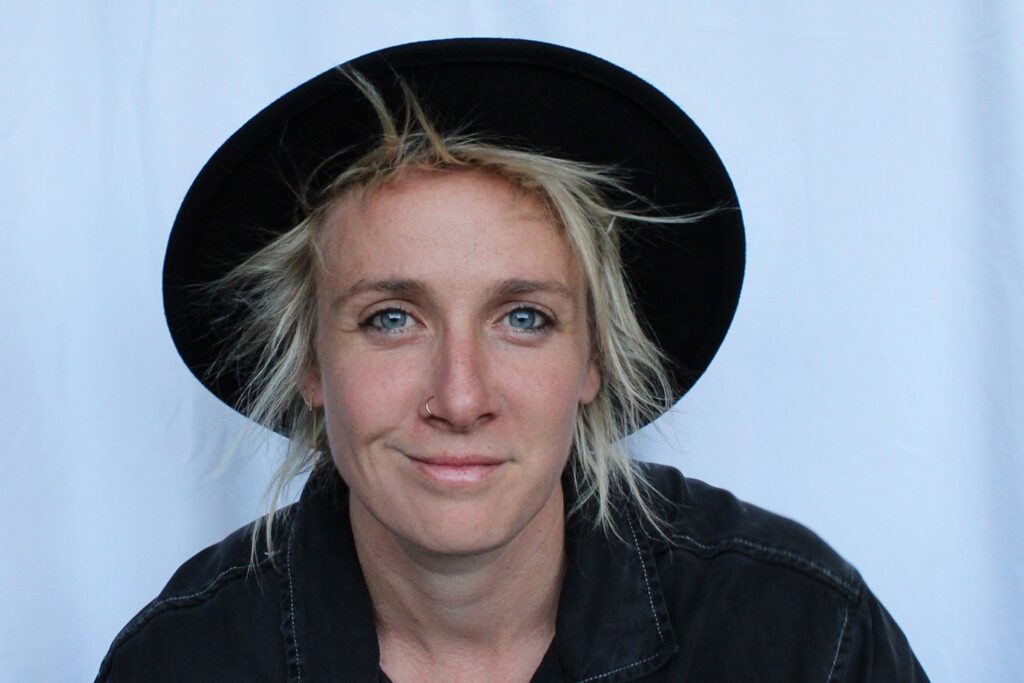Nicole Gibson is making waves in the startup world with a first-of-its-kind wearable AI technology that tracks emotions.
Founded in 2021, her company, InTruth, is preparing for a public launch next year and has already raised $9.5 million.
“InTruth was a progression of me trying to solve the same problem over many years,” Gibson tells Women’s Agenda.
“I saw a massive correlation between someone’s ability to express themselves emotionally, level up their self-awareness, and their ability to overcome mental health challenges [as well as] intitiate any meaningful change in their life”.

Noting that science that shows emotion drives 80 per cent of our decision making, Gibson says she pushed herself to find a scalable way to change – on a societal level – our relationship with emotion.
While the market for wearable technology is already rapidly growing, InTruth fills a gap in the market by pulling raw data from the wearables and using a machine-learning model that translates this data into emotions, which the user then can better understand.

Having dedicated most of her career to tackling mental health issues, Gibson’s first company was another mental health not-for-profit, aimed at helping communities address conflict and build emotional resilience. Gibson founded InTruth’s parent company Love Out Loud as well.
She was also Australia’s youngest-ever Commonwealth mental health commissioner, while working under the Abbott government.

“The biggest challenge, ultimately, for any founder, is their own relationship with themselves,” says Gibson, adding that it’s important to be patient and compassionate towards yourself when things are tough or the capital isn’t there.
“For the first 18 months of trying to build this technology, I had most technicians and engineers and neuroscientists that I was consulting with tell me it wasn’t possible, and that I should just quit because emotion is too subjective.”
Nevertheless, Gibson persisted and says “it’s really interesting because the scientific foundation that we’ve actually built InTruth on, now suggests the opposite – emotion is an objective trigger that’s happening in the nervous system that we then subjectively interpret.”
Gibson says this completely flipped her understanding of what emotion is, and she hopes the rest of the world will soon understand it.
“People are very resistant sometimes when it comes to emotion because there’s so much cultural stigma and shame around expressing ourselves,” she says.

When it comes to raising the necessary funding to grow InTruth, the company’s $9.5 million includes $9.1 million in the form of a non-dilutive grant from a family office in the UK. Noting the importance of this clarification, Gibson states the truth that many female founders know all too well – venture capital (VC) funding is hard to raise as a woman.
A report earlier this year found that just 3.9 per cent of VC funding for student startups in Australia has gone to women-only founders in the last decade.
‘Pioneering a different way’
Earlier this month, at SXSW in Sydney, it was reported that Gibson’s pitch for InTruth was a big hit with those in attendance. Some of the potential use cases that she’s cited for the technology includes emergency workers being able to predict which team members might be experiencing PTSD, or an office manager being able to measure their team’s energy and performance. Or, on an individual level, the emotional information could be used to help someone better understand their relationship habits.
Some of the concern around AI technology and data-usage has come from how companies go about handling a user’s sensitive health information. That’s why it’s critical for companies using such technology to develop trust with customers and maintain a clean track record for privacy reasons. There are plently of conversations taking place about the downfalls and benefits of so much data tracking.
“I think we can grow billion dollar ideas without compromising these other areas of what really matters – people and impact,” Gibson says.
“What I work towards as a founder is pioneering a different way. I think business needs an overhaul,” she says, adding that for other female founders out there who might be struggling in the venture capital space “it could just be that it’s not the right money for you”.

“Try to find a path with people and partners that don’t force you to constantly question yourself,” Gibson says.
“[For most] of the people that have rejected you, it has nothing to do with how good your ideas are,” she says, adding that as long as you’ve thought things through and done market research for the business idea, it all comes down to “fundamental belief and confidence”.
“[If] what you’re doing is solving a genuine problem, and you’re the person for the job, and if you have that confidence, and people [still] aren’t meeting you in that, you’ve got to choose.”


